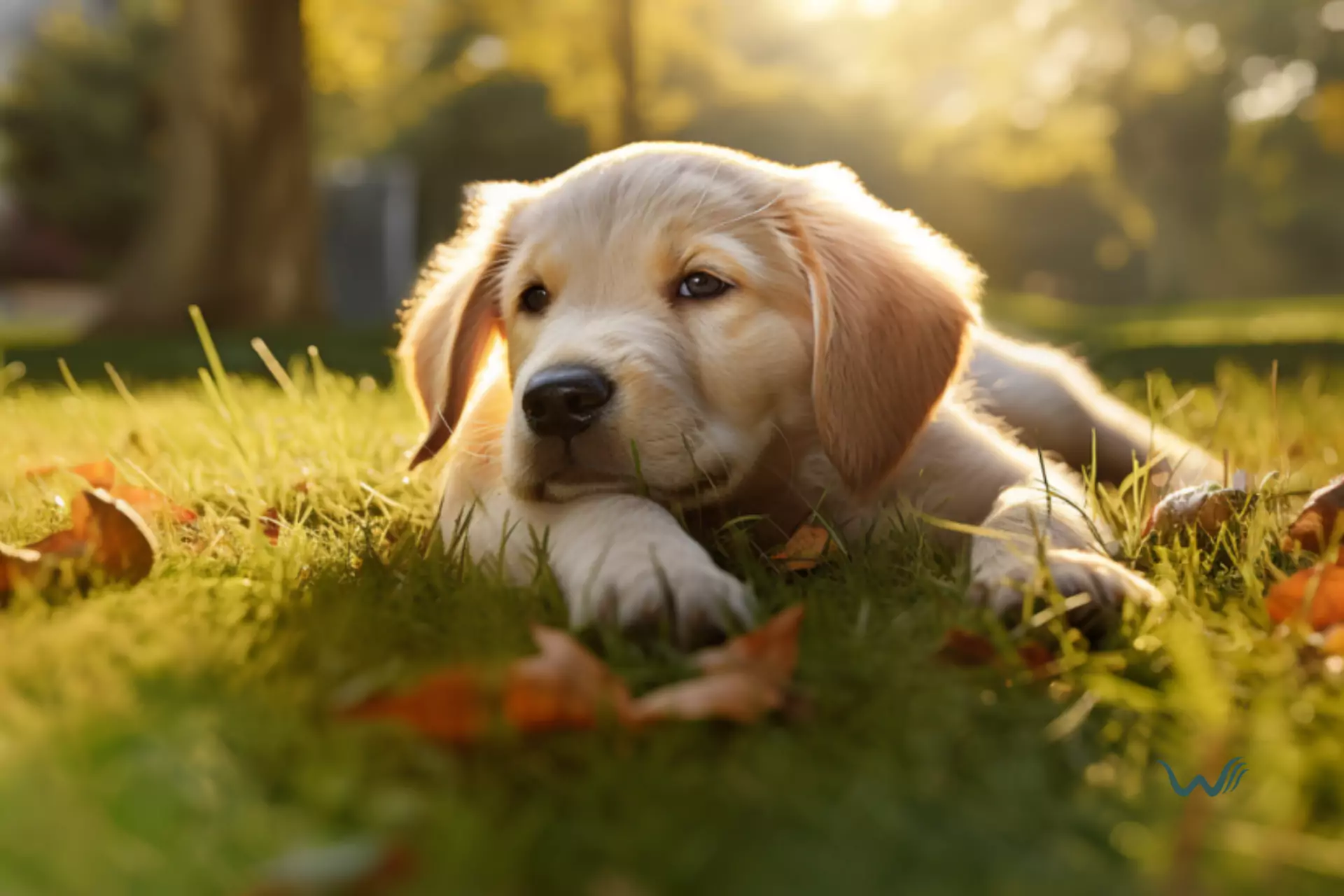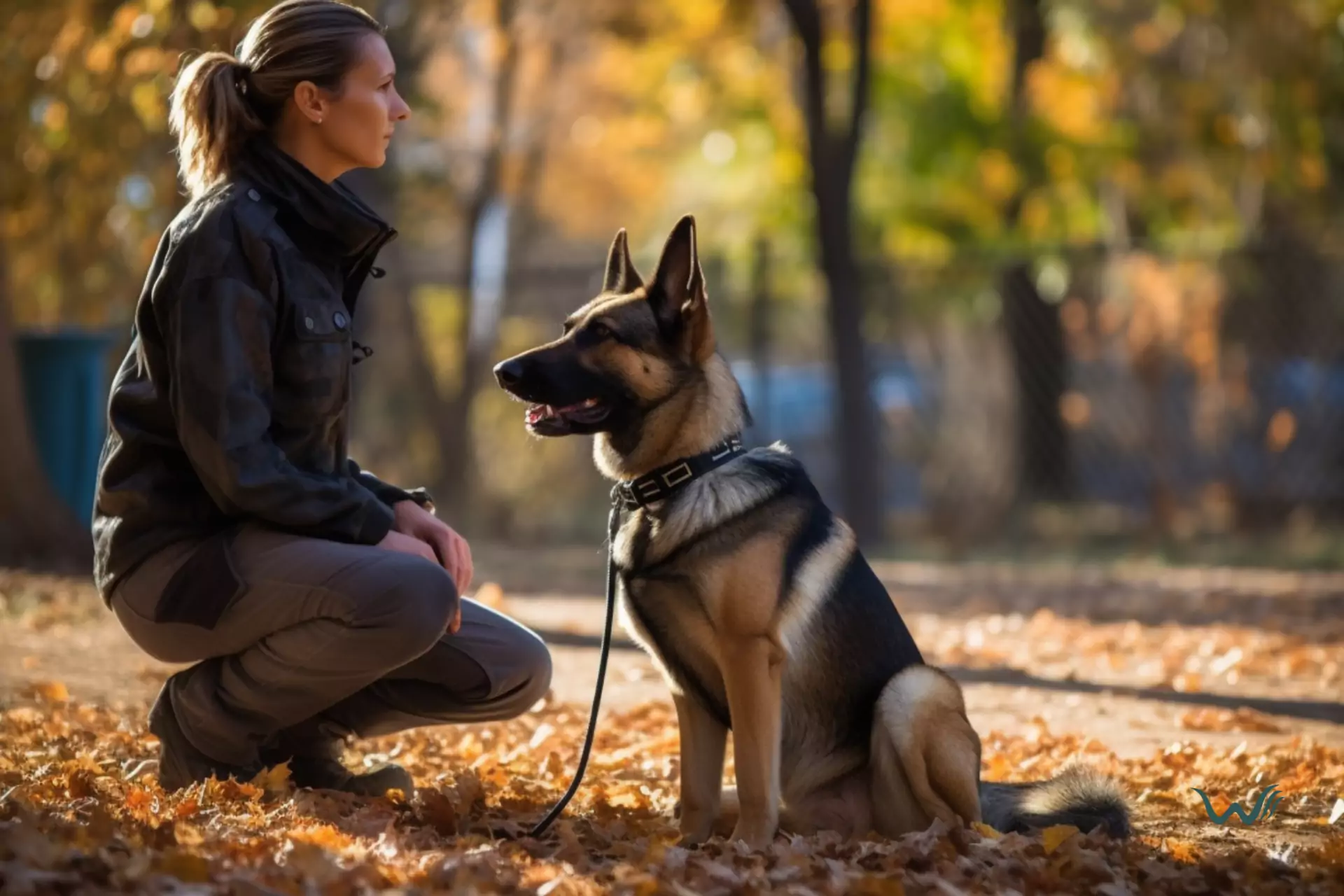

7 Tips On How To Potty Train A Puppy
by Haley Mills
Last updated: April 5, 2024
Verified and Approved by:
Angela Morris,
MSW, LCSW
Fact Checked

Potty training a puppy can be daunting, but it is an essential part of pet ownership. With patience and consistency, you can successfully teach your puppy where to go potty and avoid any unwanted accidents in the house. Here are seven tips on potty training a puppy that will make the process less stressful for you and your furry friend.
Firstly, starting early is key to potty training success. Puppies have a short attention span, so it’s important to begin training as soon as possible. Other important factors to consider are establishing a routine, using positive reinforcement, and supervision. By following these tips and being patient and consistent, you can expect your puppy to be fully potty trained in no time!
Start Early
You gotta start early if you don’t want to deal with accidents all over the house, so get ready to put in some work! Potty training a puppy is not easy, but it’s worth it in the long run. The earlier you start, the better. Ideally, you should start potty training your puppy as soon as you bring them home, which is usually around eight weeks old. This is the perfect time to start teaching your puppy where they should go potty and where they shouldn’t.
Starting early means you can establish good habits and routines for your puppy. For example, you can teach them to go potty outside after eating, drinking, and playing. You can also teach them to go potty in a specific area of your yard. This consistency will make it easier for your puppy to understand where they should go potty and help prevent house accidents. Remember, the earlier you start, the easier it will be to potty train your puppy, so don’t procrastinate!
Establish a Routine
Establishing a consistent routine for your furry friend is essential in their journey to becoming potty trained. Puppies thrive on routine, and it helps them understand what is expected of them. A regular routine will help your puppy learn when to eat, play, and, most importantly, when it’s time to potty. Establishing a routine early on is vital so your puppy understands that going outside to potty is an essential part of their daily routine.
Your puppy should have a regular feeding schedule, so they know when to expect food and when they should need to go outside. After your puppy eats, take them outside to go potty. Puppies usually need to go outside after they wake up from a nap, after they eat or drink, or after playing. If you notice your puppy sniffing around or circling, that’s usually a sign they need to go outside. Consistency is key when establishing a routine, so stick to the same schedule daily. With time and patience, your puppy will learn their routine and become potty trained.
Use Positive Reinforcement
Using positive reinforcement is key to successfully potty training your furry friend. Instead of punishing your puppy for accidents, reward them for good behavior. This means giving them treats and praise every time they successfully go potty outside. Positive reinforcement helps your puppy associate good behavior with rewards and strengthens the bond between you and your furry friend.
When using positive reinforcement, timing is everything. Ensure you give your puppy the treat and praise immediately after they go potty. This will help them understand that they are being rewarded for going potty outside rather than for coming back inside. Over time, your puppy will start associating going potty outside with positive experiences, making it more likely that they will continue to do so. Remember to be patient and consistent with your training, and your furry friend will be potty trained in no time!
Supervise Your Puppy
When watching your new furry friend, you can prevent accidents and teach them good behaviors. Puppies have small bladders and must go potty frequently, especially after eating or drinking. By supervising your puppy, you can anticipate when they need to go and take them outside to the designated potty area. This prevents accidents inside the house and teaches your puppy where they should go potty.
Supervising your puppy also allows you to catch any bad behaviors and redirect them. If you notice your puppy sniffing around or circling in a certain area, it may be a sign that they need to go potty. You reinforce good behavior by taking them outside and praising them when they go. However, if you catch them starting to go potty inside, interrupt them with a firm “no” and quickly take them outside to finish. Your puppy will learn where it should and should not go potty with consistent supervision and redirection.
Limit Access to Certain Areas
One way to prevent accidents in your home is by limiting your puppy’s access to certain areas. This is especially important during the potty training process. You don’t want your puppy to have free reign of the house, as they may not understand where it’s appropriate to go potty yet.
Start by designating a specific area for your puppy to stay in when you’re not able to supervise them. This could be a crate or a gated-off section of a room. Make sure this area is comfortable for your puppy, with plenty of toys, a bed, and access to water. When you can supervise your puppy, you can slowly start allowing them access to other areas of the house. Just make sure you keep a close eye on them and take them outside frequently to potty. By gradually increasing their access, you’re allowing them to learn where it’s appropriate to go potty in your home.
Limiting your puppy’s access to certain areas will not only help with potty training, but it can also prevent them from destructive behavior. Puppies love to chew on things they’re not supposed to and may even have accidents in areas you’d rather they didn’t. By setting boundaries and gradually increasing their access, you’re teaching your puppy good habits and helping them become well-behaved members of your household.
Be Patient and Consistent
Patience and consistency are key when it comes to successfully teaching your furry friend where to go potty. Potty training can be a frustrating and time-consuming process, but it’s important to remember that your puppy is still learning and needs your guidance and support. It’s essential to establish a routine and stick to it, taking your puppy out for regular potty breaks at the same times each day. This will help your puppy develop a sense of when it’s time to go and where it’s appropriate.
It’s also important to be patient with your puppy during this process. Accidents will happen, and it’s important not to punish or scold your puppy for making mistakes. Instead, focus on positive reinforcement and rewarding your puppy for going potty in the right place. Your puppy will learn the proper behavior with time and consistency and become fully potty trained. Remember to stay patient and consistent throughout the process, and your furry friend will be fully trained soon!
Is the kicking behavior related to the potty training process for puppies?
When it comes to potty training puppies, many dog owners wonder why dogs kick after relieving themselves. This behavior is actually a natural instinct for marking their territory and spreading their scent. It’s completely normal and unrelated to the potty training process. Training still requires consistency and positive reinforcement.
Seek Professional Help if Needed
Don’t be discouraged if your puppy is having difficulty with potty training. It’s important to remember that each dog is unique and may take longer to learn than others. However, if you have been consistently following all the tips and techniques for potty training and your puppy still isn’t getting the hang of it, it may be time to consider seeking professional help.
A professional trainer or behaviorist can help identify any underlying issues that may be hindering your puppy’s progress. They can also provide personalized guidance and advice on how to train your puppy best. Don’t be afraid to ask for help if needed. With the right support and guidance, your puppy can successfully learn to go potty in the appropriate place and become a well-behaved household member.
Frequently Asked Questions
How long does it usually take to potty train a puppy?
It usually takes 4-6 months to fully potty train a puppy. Consistency, patience, and positive reinforcement are key. Remember to take your puppy out frequently and praise them when they go outside.
What should I do if my puppy has accidents even after being potty trained?
If your puppy is still having accidents after being potty trained, don’t punish them. Instead, revisit the basics of potty training, supervise them closely, and consider consulting with a professional trainer for additional guidance.
Can I use punishment as a method of potty training?
No, punishment should not be used as a method of potty training for a puppy. Instead, positive reinforcement through treats and praise for good behavior is a more effective and humane approach.
Is it necessary to use a designated potty area or can my puppy go anywhere outside?
It is important to designate a specific potty area for your puppy to use, as it will help them understand where to go and reduce accidents in other areas. Consistency is key in successful potty training.
How do I know if my puppy has to go potty or is just asking for attention?
If your puppy is asking for attention, they may wag their tail or jump on you. If they need to go potty, they may sniff or circle around. Watch for these signals to distinguish between the two.
Certify Your Emotional Support Animal Today

Why You Can Rely on Us?
At Wellness Wag, we believe your pet deserves care rooted in both science and compassion. Each article is carefully researched, written in clear language for pet owners, and then reviewed by qualified professionals to ensure the information is evidence-based, current, and practical for real-life care. Our goal is to help you feel confident in making informed decisions about your pet’s health and well-being.
Reviewed by
Angela Morris, MSW, LCSW
Angela is a licensed clinical social worker with 20 years of experience in patient advocacy and community mental health. She has assisted numerous clients with ESA evaluations and brings a deep understanding of disability accommodations, ensuring that all information is accurate, supportive, and practical.

Written by :
Haley Mills
Last Updated :
April 5, 2024










